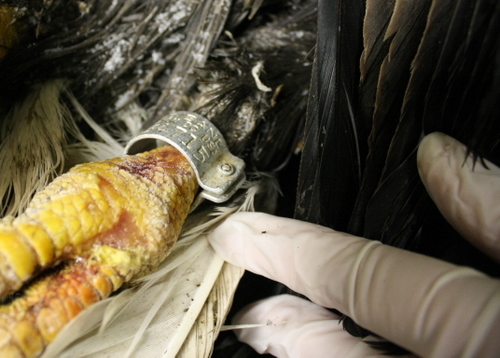
An eagle that died in the Sitka National Historical Park this month tested positive for the avian influenza. A second eagle that died in the park was also tested for the virus, and results are pending.
Jennifer Cedarleaf is the avian director at the Alaska Raptor Center. She said a Sitkan reported a third eagle in his yard on Lance Drive that was exhibiting symptoms of the virus.
“So the last time I heard he was laying under a bush…in the gentleman’s yard, and I told him, ‘Just leave the bird be and let me know what’s happening, and I can come check it out later,” Cedarleaf said.
She said a handful of bald eagles have tested positive for the virus in Alaska so far this month– including several in Dutch Harbor, two in Anchorage, and one in the Mat-Su Valley. The highly pathogenic bird flu is the worst the country has seen since 2015, and has a high mortality rate for raptors. She says neurologic symptoms are one indicator that a bird may be suffering.
“Like holding its head strange, or having tremors or having a hard time walking– like stumbling, almost,” Cedarleaf said. “Those are really good signs for avian influenza.”
Once a bird has been tested, it takes a couple of weeks to get results from the samples. Dr. Vicki Vosburg at Pets’ Choice is collecting local samples and sending them to the Washington State University Lab, through Alaska’s state veterinarian. Vosburg said she wants Sitkans to know that it has been challenging for her office and the Raptor Center to suspend their bird rehabilitation services in response to the outbreak.
“Please be understanding when we can’t go out and save a bird,” Vosburg said. “If there’s a situation where an eagle gets hit by a car and its clearly got a broken wing, I will definitely pick up that bird. Unfortunately I won’t be able to do surgery and rehabilitate it. But I will be able to euthanize it and prevent it from suffering out in the wild.”
Cedarleaf said people who own chickens should keep a close eye on their coops. Those with indoor birds should be very aware: She recommends leaving shoes outside in a bucket to prevent tracking in infected bird feces. And if anyone notices a bird behaving strangely, they can call the Alaska Raptor Center’s emergency line at 738-8662 for next steps.






























